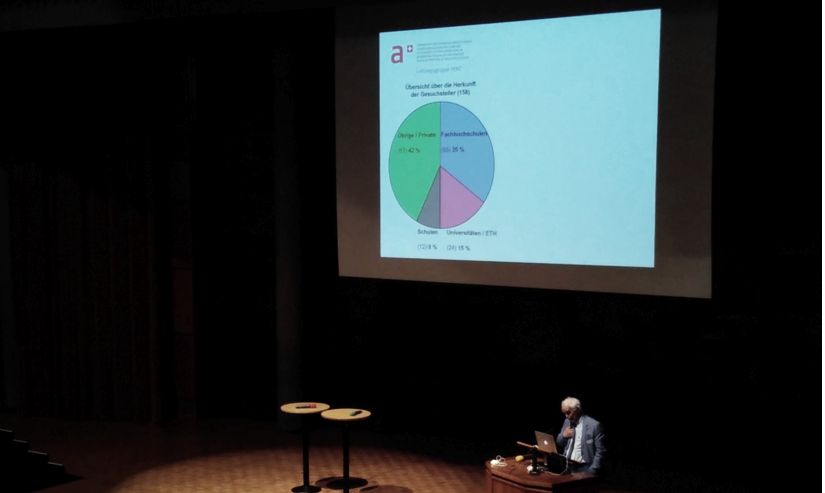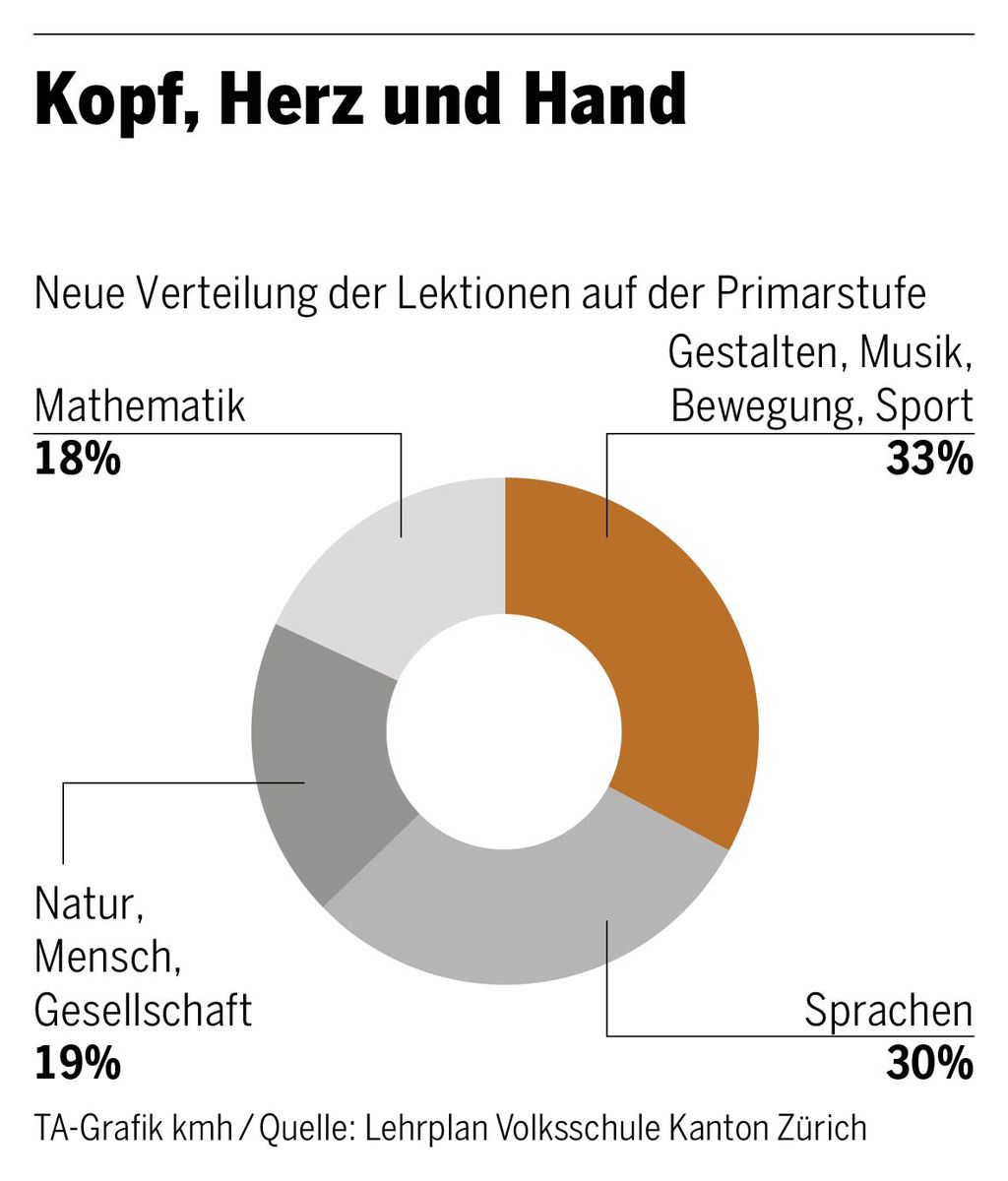016 #stem

At the end of May I represented the School of Data at a day-long networking event aimed at people involved in improving general understanding and access to scientific and technical literacy, at all levels and areas of society, but particularly in Science, technology, engineering, and mathematics (STEM, commonly referred to as MINT in Western European countries) education. The long term goals of the Swiss STEM Coordinating Group (MINT Leitungsgruppe / Comité directeur MINT) who ran the event is to address deficits in technology specialists in Switzerland, and I am thankful to the hosts for the opportunity to participate in the event.

The conference (see full schedule in German or French) took place at the University of Fribourg, hosted by the Academies of Arts and Sciences. From the topics covered - youth and programming, further education, experimentation with genetics and robotics, future of education - it seemed likely that there would be interesting material and opportunities for exchange with thought leaders.
My slightly edited notes (from my liveblog on our #youth channel) follow below. Please feel free to get in touch if you have any questions about the specific topics or groups.
"A corporate identity for youth in ICT?" - the STEM conference is kicking off now with Dr.Jürg Pfister presenting the Swiss Academies - the largest cross disciplinary science network in CH, with links to industry, politics, the public
Side note: on my way in I was handed this flyer about this funding call for projects, especially relevant to initiatives like DjangoGirls.
Back to Dr.Pfister: the apparent goal for MINT is the understandings of the world through tech. The "real" goal is that social development demands great know-how in high tech. I.e. we are talking about developing the high-tech nation of Switzerland.
Resource use demands a basis for living. And social discourse is the basis for direct democracy. Challenge: young people are very excited about discovering nature and technology. And yet there is a lack of qualified personnel at ALL education levels.
Furthermore, girls need to be much better supported so that they have as much access to tech as boys. There is a problem with gender stereotypes that pervades science and industry. Interest in STEM depends not only on talent but is influenced by family, school, commerce and many other tertiary actors.
Dr.Pfister is talking about Self-Concepts, or personal views, on technology. The academies recommend ways on how to make tech jobs look more attractive to young people. One example is the TecDay, a public event that we could also try to participate in at the end of September. We could also submit a story for their magazine, TechnoScope.
The next speaker is Prof. Richard Bührer who leads the STEM group and will introduce projects. The first is http://bildungskrippen.ch - a family service to better educate personnel at nurseries, presented by Melanie Bolz.
Children enjoy discovery. Adults are needed who recognise the interests of children and can develop, support, mentor. They are producing videos, materials, and are looking for specialists to help them with the process and Hochschulen with texts. She says that parents and all adults should be interested in exchange with young people. This means supporting their motivation and providing further education opportunities (like Coder Dojos ;)
Dr. Petrea Adamszek from http://kinderlabor.ch/ presented the Bee-Bot, which I (and my kids) have already tried at PH Bern last year. They have set up a "Informatics Box" for schools which has the robot and lesson materials for teachers. She intoned that IT education is not happening in many schools at the basic level, because of the high efforts required to get started.
The next speaker is talking about alpine school projects in Graubünden and Valais, and they have some very interesting mathematics in energy projects.

Dr. Marie-Pierre Chevron from Uni Fribourg is now talking about DNA and genetic tech, such as new microsurgery techniques (CRISPR) that allow genetically modifying embryos - a highly political topic. Their goal is to clarify the connections between fundamental concepts - it is difficult to teach biology in schools when basic ideas (genes, chromosomes, ..) are confused. Their suggestion is an experimental method which makes teaching material the "key in hand". An impressive example is how they use C. elegans as "idealised Pedagogical Tool" in the Gentech Education box.
Francesco Mondada from EPFL is talking about how school teachers coordinate robotics activities and share knowledge. They started putting together useful material online, and now have school teachers approaching them regularly. Check out the Thymio Thool project, and their nice support forum.
Dr. Giovanni Pellegri from the University of Lugano is up next talking about Ideatorio - "spaces where children can meet science – not a 'crazy', but a normal and also female, science". Take a look at his beautifully designed Prezi for a glimpse of this approach.
Over lunch I had several interesting chats with:
- Desiree Jäger from http://www.sciencelab.uzh.ch who told me to keep an eye on http://www.sisummit.ch and apply with a project.
- Lucio Negrini from http://www.mbeo.ch/prso with whom I had an interesting talk about the problems of brining robotics into the classroom.
- Vance Carter from http://www.educatec.ch who gave me some interesting ideas about data gathering with LEGO Mindstorms and other robots.
- Gabriele Leuenberger from https://mint.lerbermatt.ch which is an innovative school near to where I live that is doing a lot of MINT activities.

After the break Josef Widmer from the State Secretariat for Education, Research and Innovation dug into the numbers. Here he is showing data about Switzerland rather behind in MINT results compared to other countries.
Stressing how important it is to make the message that support is needed clear to politicians, he did not sound too optimistic - and said we should make the most of the assignment of the Academies. He explained their plan to support a Centre of Competence with a budget (22 M) for training teachers. This will be distributed among Swiss Universities, as well as SwissSkills, science Olympade, youth science (all domains and all skills) being promoted. Schweizer Jugend Forscht and numerous other opportunities for diversity and education will be promoted.

^ excerpt from funding data in their report, showing how support is distributed among major institutions and planned in coming years.
"MINT should not be a victim of budget cuts" is a clear message of the 2014 report. He stressed that it is an important goal that one studies the landscape (and creates better data) about the education landscape in Switzerland - especially when it comes to bringing together the cantons.
"I have until now not heard a single critical word against MINT-support"

A few outtakes from the podium discussion:
- "For companies it is a losing proposition to engage in MINT - they must be required to participate in training teachers (2/3 of whom are complete novices in Graubunden)"
- "It should be a societal objective, especially in supporting acceptance among women - so that MINT is discussed at home"
- It seems that better data about salaries in IT, including freelancers [such as myself] could help the image a lot. People seem to think that there a lot of low paid jobs, that even the average carpenter earns more than the average IT-technician?
- http://www.sgv-usam.ch/ did an exhaustive study that shows that most companies in ICT provide flexible working conditions and are favorable for families - according to one of the panelists.
- "I don't understand the numbers. There are not enough internships to accomodate all the graduates of technology programs"
- "Health and IT are industries with demand exceeding available graduate placements available" -Widmer
- "Teaching positions are motivated intrinsically, not by salary..everybody knows that. Glamorous talk about IT among teachers is really embarrassing. There is a real gulf between what we are talking about here today, and what is really happening in classrooms and the actual lack of motivation for MINT" -Mondada
- "Third party support is needed, there is lots of private funding, we can't depend on the state alone"
Closing statements from the MINT Leitungsgruppe:
- Most of the funding requests (42%) are coming from "private and others" - the least from schools (8%). - There is too little funding available to meet demand.
- Most of the projects have local focus.
- Most of the problems with the project proposals were around budgeting and financial requirements.
- Complete funding requirements available here
Here is how the primary subjects are represented at the primary levels in the new school curriculum (Sprachen - languages):

^ via TagesAnzeiger
Please feel free to send any questions or comments on our forum.

